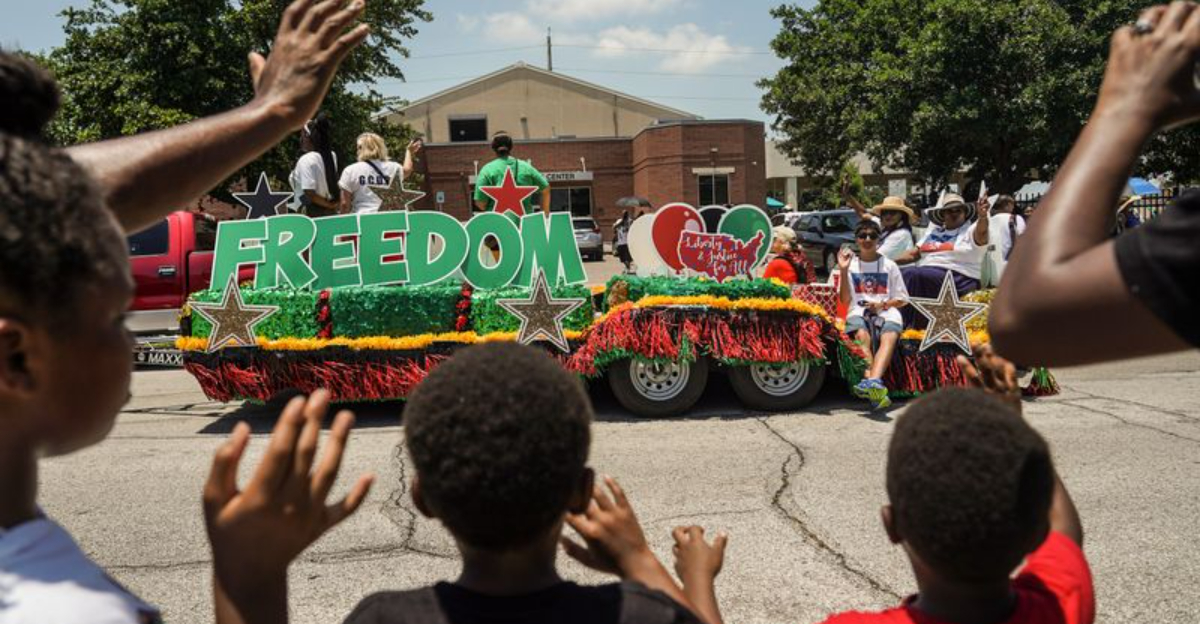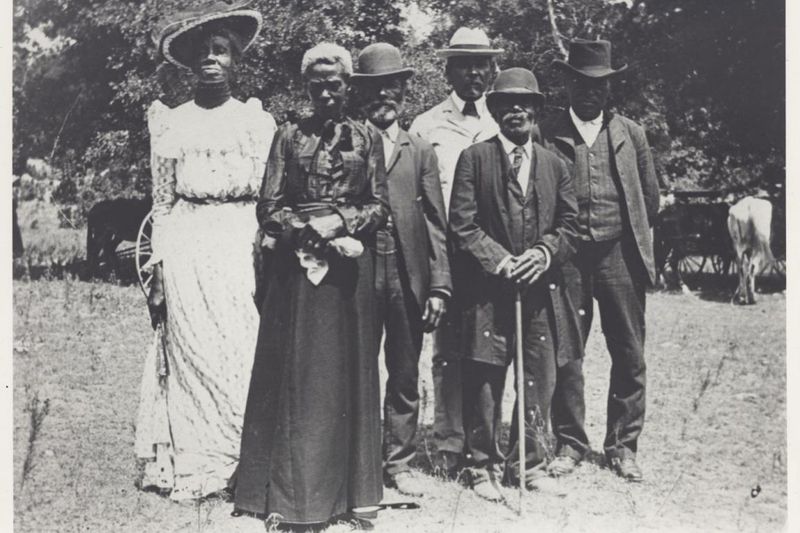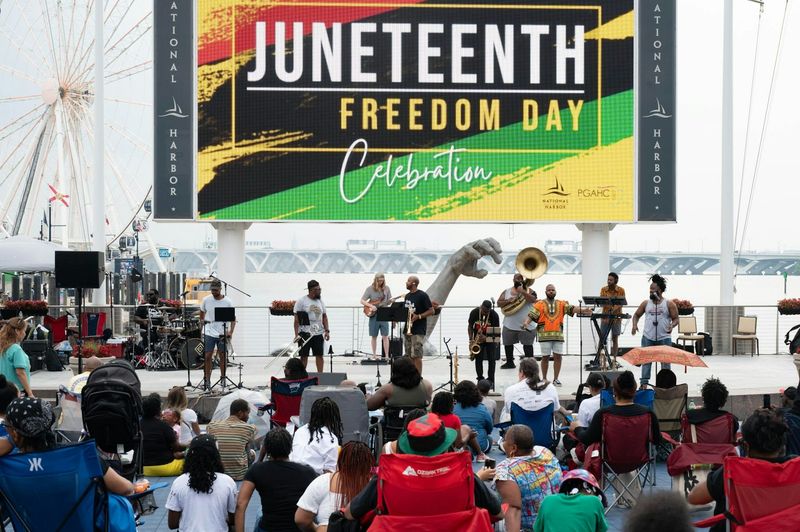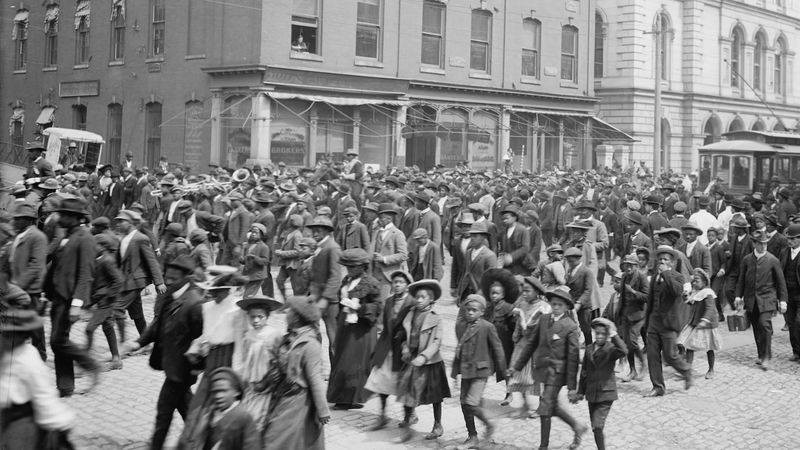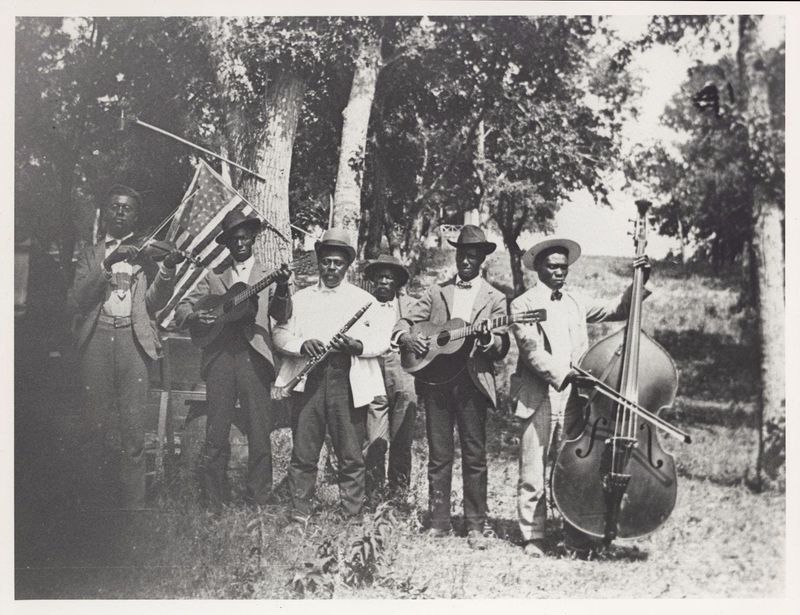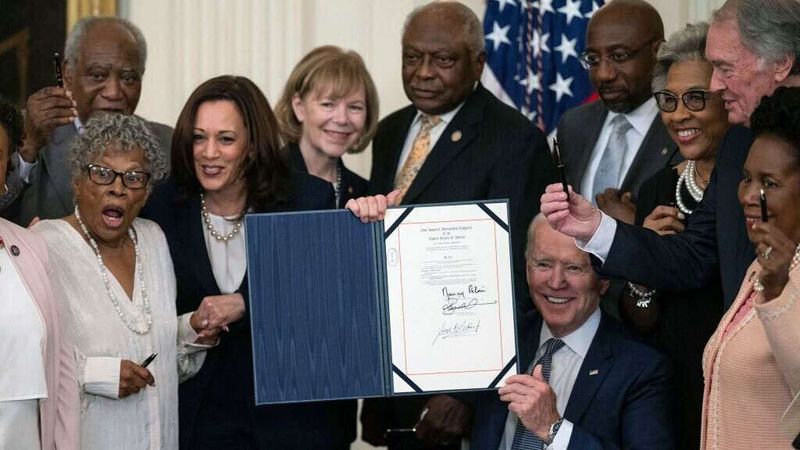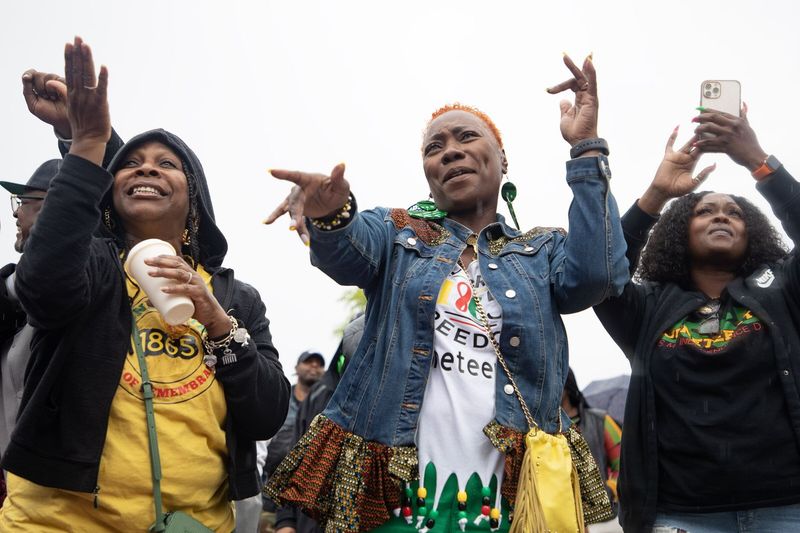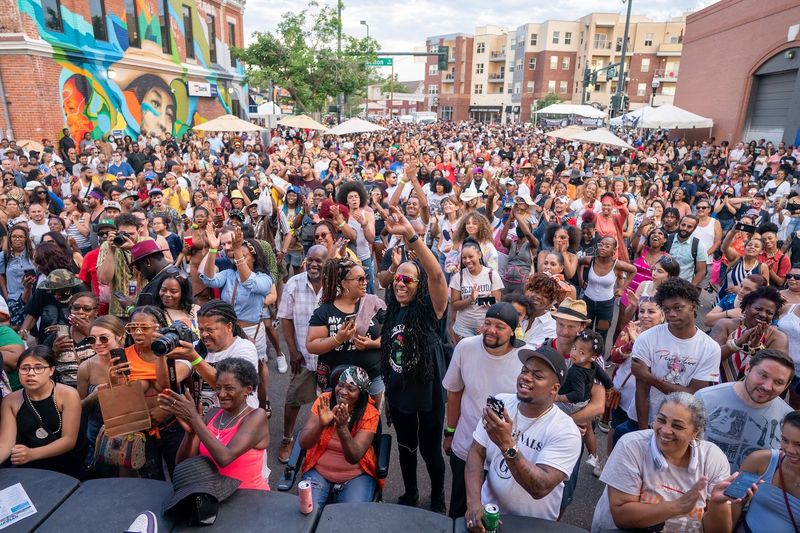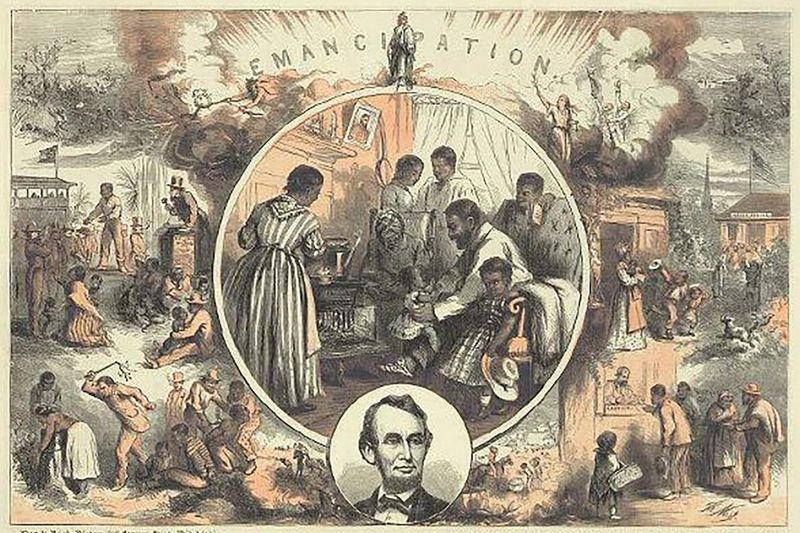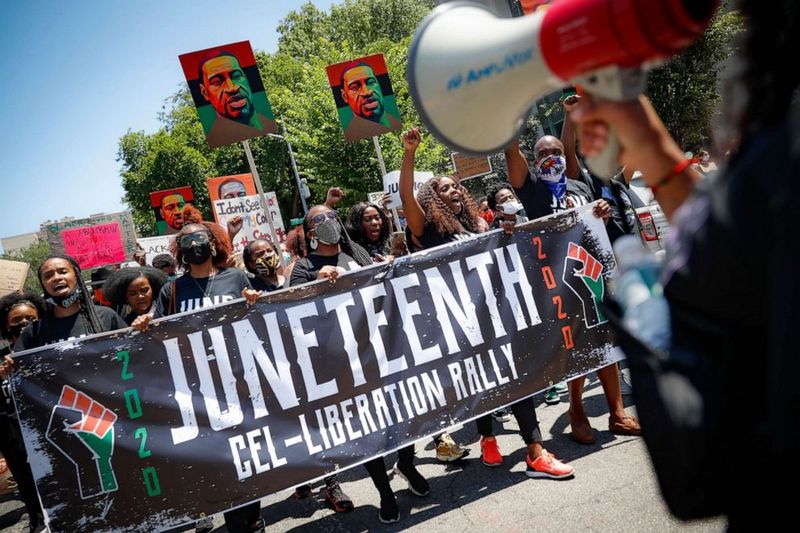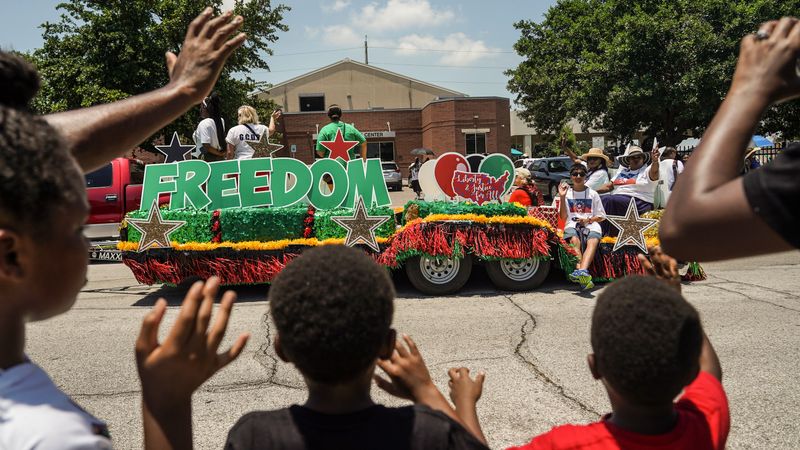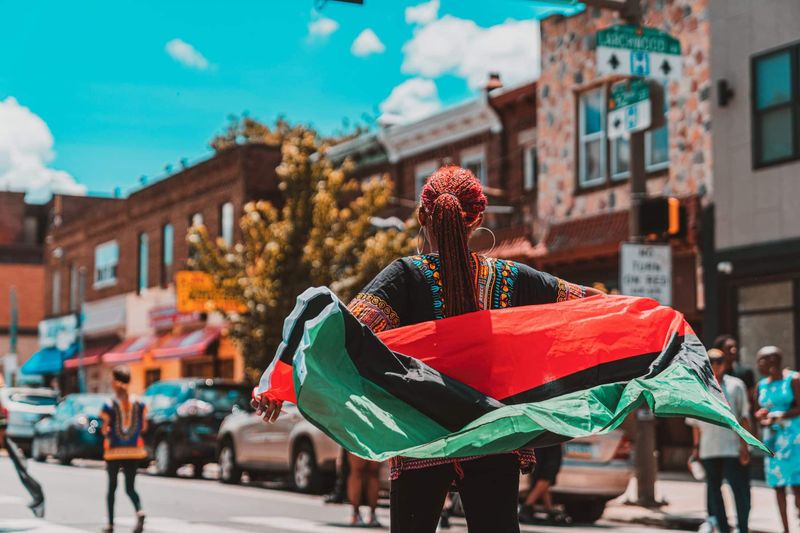Juneteenth is more than a date—it’s a powerful symbol of freedom, resistance, and the ongoing fight for justice in the United States. Here are 13 essential things to understand about Juneteenth, why it matters, and how people across the country honor it today.
1. It Marks the End of Slavery in the U.S.—Kind Of
June 19, 1865, forever etched in history, marks the moment Union forces arrived in Galveston, Texas, to declare freedom for the last remaining enslaved African Americans. This pivotal moment came two and a half years after President Lincoln’s Emancipation Proclamation.
The news spread like wildfire, sparking joyous celebrations among those who had long awaited liberation. Imagine the atmosphere, filled with disbelief and overwhelming relief, as families embraced newfound freedom. Yet, the journey towards equality was far from over. This day is a cornerstone in the story of America’s ongoing struggle for racial justice and recognition.
2. It’s Also Known as Freedom Day or Emancipation Day
Known by many names, Juneteenth is also celebrated as Freedom Day or Emancipation Day. Each name encapsulates the essence of the day—a celebration of liberation and the triumph over bondage. In communities across the nation, people gather to honor the courage and resilience of those who fought tirelessly for freedom.
The alternate names reflect a shared recognition of the importance of this milestone. It’s a time for reflection, rejoicing, and renewed commitment to the ideals of freedom and equality for all. The names are as diverse as the celebrations themselves, each with its own unique flavor.
3. Texas Was the Last Confederate State to Enforce Emancipation
Texas holds a significant place in the history of Juneteenth as the last Confederate state to enforce emancipation. In a region where the institution of slavery was deeply entrenched, the delayed enforcement highlighted the resistance to change and the challenges faced. The efforts of Union soldiers to implement the new law represent a turning point in the fight for equality.
The announcement in Galveston became a beacon of hope, inspiring future generations to continue the struggle for civil rights and justice. Texas stands as a testament to the resilience and determination of those who seek freedom.
4. The First Juneteenth Was Celebrated in 1866
The first Juneteenth celebration took place a year after the initial announcement in Galveston, Texas. In 1866, the newly freed community gathered to commemorate their liberation with joy, reflection, and a sense of unity. Families came together to share meals, music, and stories of resilience.
This inaugural celebration laid the foundation for an enduring tradition that continues to grow and evolve. It was a day filled with gratitude and hope, paving the way for future commemorations. The event was a testament to the strength and spirit of a people determined to honor their past while looking forward.
5. It Became a Texas State Holiday in 1980
In 1980, Texas became the first state to recognize Juneteenth as an official holiday, a significant milestone in its history. This acknowledgment by the state legislature marked a formal recognition of the day’s importance to African American heritage. The move helped to solidify Juneteenth’s place in the broader cultural landscape, inspiring other states to follow suit.
With festivities held across Texas, the holiday took on new life, spurring celebrations of heritage and progress. The recognition in 1980 was both a nod to the past struggles and a hopeful glance towards future equality and understanding.
6. It Was Declared a Federal Holiday in 2021
The year 2021 was a landmark moment for Juneteenth, as it was officially declared a federal holiday. President Biden’s signing of the Juneteenth National Independence Day Act brought national recognition to this significant day in American history. The legislation highlighted the importance of acknowledging the past while striving for a more inclusive future.
This federal acknowledgment has encouraged broader celebrations and conversations about racial justice and equality. As a result, Juneteenth has gained greater prominence, becoming a day for reflection, celebration, and renewed commitment to building a better society for all.
7. Red Foods and Drinks Are Part of the Tradition
The celebration of Juneteenth is rich with symbolism, and red foods and drinks play a pivotal role in the festivities. Red symbolizes resilience and the bloodshed of enslaved ancestors. Traditional foods like barbecued meats, red velvet cake, and hibiscus tea are staples at many gatherings.
These vibrant dishes not only delight the senses but also serve as a powerful reminder of the sacrifices made by those who came before. The culinary aspect of Juneteenth is both a celebration of heritage and an opportunity to educate younger generations about the significance of the day.
8. It Celebrates Community and Resilience
Juneteenth is a celebration of community strength and resilience. Across the nation, people come together to acknowledge their shared history and celebrate cultural heritage. The day is filled with festivities, including parades, concerts, and community gatherings. It’s a time to reflect on the struggles faced by previous generations while honoring the progress made.
The celebration serves as a reminder of the power of unity and the enduring spirit of a community that has overcome adversity. Juneteenth is more than a commemoration; it’s a vibrant expression of cultural pride and a testament to collective resilience.
9. Parades, Festivals, and Block Parties Are Common
Across the United States, Juneteenth is celebrated with vibrant parades, lively festivals, and bustling block parties. These festivities are a chance for communities to come together in joy and unity, showcasing the rich cultural heritage and traditions. Floats, music, dance, and food fill the streets, creating an atmosphere of celebration and remembrance.
These events provide an opportunity for reflection on the journey towards freedom and equality. They also emphasize the importance of community bonds and the joy of shared experiences. The celebrations are as diverse as the country itself, each with its own unique flair.
10. Education Plays a Central Role
Education is at the heart of Juneteenth celebrations, emphasizing the importance of understanding history to shape a better future. Many events include lectures, historical exhibits, and readings of the Emancipation Proclamation. These educational components aim to deepen the understanding of the struggles and triumphs of African Americans throughout history.
By educating new generations, communities hope to instill a sense of responsibility and awareness about ongoing social justice issues. The focus on education reflects the belief that knowledge is a powerful tool for change, fostering empathy and unity.
11. It Inspires Modern Activism
Juneteenth is not just a historical commemoration; it’s a catalyst for modern activism and a call to action. The day serves as a reminder of the ongoing struggle against racial inequality and injustice. It inspires individuals and communities to engage in activism, advocating for change and progress. From peaceful rallies to community discussions, Juneteenth is a platform for raising awareness and promoting social justice.
The spirit of the day is rooted in the belief that change is possible through collective effort. It encourages individuals to reflect on their role in the fight for equality.
12. It’s Gaining Broader Recognition Every Year
Each year, Juneteenth gains broader recognition across the United States. More states and cities are adopting official observances, and businesses are beginning to recognize it as a paid holiday. This growing awareness is a testament to the enduring significance of the day and its relevance in today’s discussions about race and equality.
As more people learn about Juneteenth, the celebrations become more widespread, inclusive, and meaningful. The increased recognition is a positive step towards acknowledging and understanding the complexities of American history. It serves as a reminder of the importance of cultural heritage and unity.
13. It’s a Celebration of Black Freedom—Past, Present, and Future
Juneteenth is a celebration that honors Black freedom across time. It acknowledges the struggles, achievements, and ongoing journey toward true equality. From historical figures who paved the way to modern leaders advocating for change, it’s a time to reflect on the past while looking towards a hopeful future.
The day unites communities in celebration of cultural pride and shared heritage, serving as a powerful reminder of resilience and hope. Juneteenth encourages reflection on the progress made and the work still needed to achieve true liberation and justice for all.
